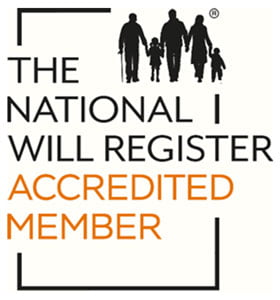How can I protect my assets from care home fees?
We are all forced to speculate as part of planning for the future. Health, finances, and families continually evolve, so it’s impossible to map a firm path through life. The temptation may be to focus on the here and now, but uncertainty makes forward-thinking all the more critical. Preparing for what may lie ahead means we and our families will be cared for, which is more important than ever in light of the cost of living crisis.
One of the unknowns is the possibility of moving into a care home in later life. This will be the reality for many of us, but too few address it. Some people are unaware that this is something they should consider. Others choose to put it to the back of their minds because becoming dependent on others for care can raise uncomfortable questions about health and welfare.
But for financial reasons, if nothing else, it’s wise to give future care some serious thought; according to Age UK, a place in a care home costs around £800 per week on average. A nursing home is in the region of £1,100. And while some people will be entitled to funded care, many others won’t. The unfortunate reality for some people who haven’t taken steps to protect assets is that their savings will be wiped out by care home fees, a situation which my mother has seen all too many times as a care home nurse. In such circumstances, the family home may be lost, and children and grandchildren may lose their inheritance.
So, it’s wise to consider the prospect of paying for care later in life. Here are some key things to know:
There are different types of care
‘Care homes’ include residential homes, where carers help with everyday tasks, and nursing homes, offering round-the-clock nursing care. Some people may be suited to residential care, where carers visit the person in their home. A care needs assessment by your local council will help determine the correct type of care for you.
Whether you’ll have to pay or not depends on how much money you have
The current threshold in England is £23,250. If you have more than that amount to your name, you usually need to pay your care home fees entirely. Your council would carry out a means test, and if you were to qualify for financial support, it would be worked out at that point.
Some people with health-based needs will qualify for NHS continuing healthcare. This means their place in a care home will be funded entirely by the NHS.
Some significant changes to care funding will come into force next year. These include, in England, an £86,000 cap on the amount a person will need to spend on their care.
The value of the family home is sometimes taken into account in a means test
However, it should be excluded if the person’s husband/wife or civil partner continues to live there. Other categories of occupants – for example, a child under 16 – also prevent the house value from being included in the means test.
Pension is another asset that clients often ask about. A means test will take account of a state pension, but where a workplace or private pension benefits the person’s husband/wife or civil partner, only 50% of its value will be considered.
Some people need to sell their home to fund care
Every person and family is different, and there are various options – and costs – regarding the type of care available. Some people have significant savings or investments that can fund their care, meaning their home is untouched. There are all sorts of scenarios that could have a bearing on whether you might need to sell up, and your solicitor will help you get a clear picture of this as part of the planning process.
Giving away assets is a dangerous game
Clients often ask us: can’t I give things away so that what’s left falls below the £23,250 threshold? While there are circumstances in which it’s okay to make gifts or big purchases, strict rules prevent people from reducing the value of assets to avoid having to pay care home fees. Activity leading up to a means assessment (even if years previously, if the prospect of care was on the horizon) would be scrutinised. It could be deemed ‘a deliberate deprivation of assets’. So, for example, transferring ownership of your house to your children or giving them each a lump sum, ostensibly as ‘early inheritance’, could be caught by the rules.
There are things you can do to put yourself and your family in a better position
Most clients tell us that it’s the thought of losing their family home that they fear most. And there are some ways around having to sell. One possibility is to choose domiciliary care rather than moving to a care home (although this won’t suit everyone). That arrangement could be funded through equity release. Another option could be to rent out your home and use that income to pay your care home fees.
Longer-term planning can involve the use of trusts to protect assets. We advise clients on this as part of the Will-making process and later on as their circumstances change. Various types of trust can be put in place to ringfence property and other assets for your family’s benefit. The key is to start thinking about this now.
It’s never too early to start planning
Planning doesn’t have to mean getting everything nailed right now. Sometimes, it’s about simply getting your head around the things you should consider sorting out in the next few weeks, months and years. That’s a great start, and we’re huge advocates of a step-by-step approach.
Remember that plans aren’t set in stone (it’s pretty easy to change a Will, or to alter a trust arrangement, for example). So, if the fear of committing to arrangements is holding you back from starting to get plans in place, your solicitor will be able to reassure you. We encourage clients to schedule regular review dates so they keep track of their planning and make changes where necessary so that plans are always in line with their wishes and their circumstances. This isn’t onerous, meaning you’re set up for the years ahead.
For tailored advice on protecting your family’s future and inheritance against rising care costs contact Thomas Mansfield’s Wills & Probate team on 0808 256 2917 or email [email protected].





